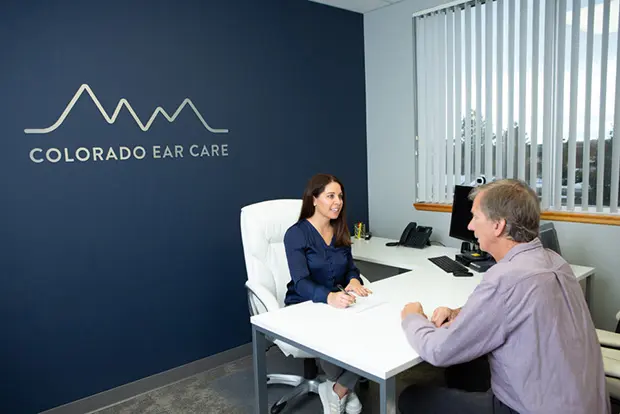Hearing aids are a long-term commitment
Fitting clients for hearing aids is one of the most rewarding moments we experience in our practice. There’s nothing quite like the feeling of helping a patient hear clearly again, and we live for it.
But, we also encounter plenty of patients who are resistant to coming to see us to get their hearing checked or to start wearing hearing aids to manage their hearing loss. We get it — it can be a big transition to start wearing hearing aids and taking on all the care that comes with them.
Although most of our patients change their minds once they experience first-hand the difference that hearing aids can make in their hearing and lives, some patients have trouble adjusting to the lifestyle change, and getting them to commit to wearing their hearing aids consistently is a challenge.
One question we get often from this group of patients is whether they have to wear their hearing aids every day. The answer? Absolutely — with a few exceptions.
How do hearing aids work?
Before we dive into the importance of wearing your hearing aids consistently, it’s helpful to understand how hearing aids work and why they’re so effective.
Hearing aids, no matter the style, work thanks to three key components: the microphone, the amplifier, and the receiver. The microphone captures the sound, the amplifier makes those sounds louder, and the receiver processes that sound so that you can hear it. It’s really quite extraordinary how hearing aids can so effectively mimic the process carried out by your inner ear and brain, and technology is continuing to improve hearing aids to make them even more seamless for users.
Because hearing aids are external devices, however, there’s often an adjustment period for new hearing aid wearers as they adapt to the change in how their bodies capture and process sound and send it to the brain. This is why it’s so crucial to wear them every day to get the maximum benefit for your hearing.
Why you should wear your hearing aids consistently
There are a few specific reasons why it’s so important to wear your hearing aids every day, even when you’re sitting at home or not engaging with sounds around you.
The first reason is that it takes time for your brain to adjust to your hearing aids, and if you’re not giving your brain enough time to adjust, you’re also not giving your hearing aids enough time to have an impact. Before putting in your hearing aids for the first time, you were probably living with some level of auditory deprivation, and when your devices are suddenly capturing, amplifying, and processing sounds, your brain needs some time to warm back up to being able to hear the sounds around you more clearly than before.
Think of each day wearing your hearing aids as practice for your brain to reintegrate into its normal hearing abilities, and when you don’t wear your hearing aids for long periods of time during the day, it’s not getting the practice it needs and can make it more difficult for your brain to recover from auditory deprivation over time.
Another reason you should consistently wear your hearing aids is that untreated hearing loss increases your risk of developing dementia and other cognitive disorders, and, by not wearing your hearing aids, you’re forcing your brain into isolation and not giving it a chance to flex the muscles it needs to carry out its normal functions.
Studies have shown that dementia is more prevalent among those with hearing loss than those without hearing loss, but hearing aid wearers can decrease the risk of developing dementia significantly. This is because hearing aids make it easier to engage with the surrounding environment and make it less likely that a person will isolate themselves due to hearing loss, which is often the start of why dementia develops in the first place.
When should you not wear your hearing aids?
While we always recommend our patients wear their devices every day while they’re awake, there are a few situations in which you may actually damage your device by wearing them, so it’s better to take them off.
If you’re showering, going swimming, or otherwise engaging in activities that involve water, you should not wear your hearing aids to prevent them from getting wet and breaking the technology inside of them.
It’s also not recommended to wear your hearing aids while you’re sleeping because this gives your ears a break and also gives you a chance to charge and air out your devices. While most hearing aids these days are designed to maximize the comfort of the wearer, sleeping with something in your ear can be disruptive, so it’s best to take them out for sleeping.
–
Consistency is key when it comes to better hearing
We understand that wearing hearing aids every day can feel like a big commitment, especially during that initial adjustment phase where you’re body is relearning how to receive and process sounds from the environment. But, over time, your hearing aids will become a part of you and you will hardly notice they’re there.
Whether you’re already a hearing aid wearer or are ready to test and treat your hearing loss, Colorado Ear Care is here to help! With four locations in the Denver area, our team of experts can help you get the most out of your hearing care experience. Contact us today.

